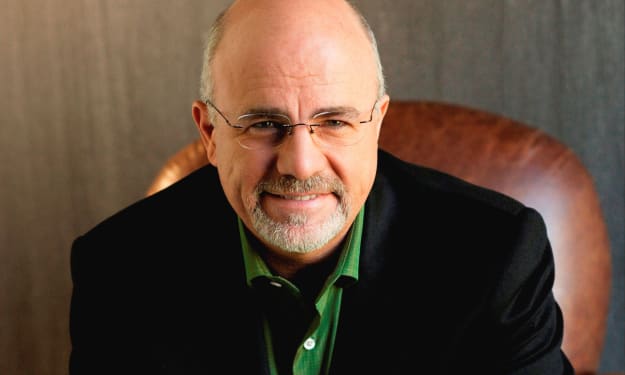Why You Should Retire Early & How to Do It
Have you been debating whether you should try to retire early or not? Here's why you should, and how to do it.

In the United States, the average retirement age is 63—two full years before the full benefits of Social Security kick in. Technically, this means that the average retirement is an early one. However, some people choose to retire even earlier than that. Some are even retired at age 30.
Did you ever wonder whether or not it's a good idea to retire early, or if it's possible? In most cases, an early retirement might seem daunting, boring, or otherwise just a bad use of time. Many people also write off the idea of retiring early simply because it seems unattainable.
An early retirement can give you a lot of excellent perks, and believe it or not, it's achievable for many of us. Here's why you'll love retiring before 63 (or 65), and how you can do it.
Retirement means that you no longer have to work in order to make ends meet. It means that you have enough wealth, financial gain, and investments to be able to live off your wealth for the rest of your life—or at least, a very long period of time.
For many people, having the option to retire early is a great thing, simply because of the freedom it offers. Have a terrible job and are fed up with your field? Retire! Want to travel the country while everyone else your age is toiling away? Retire!
The reasons to retire early are manifold.

There are people who spend all their lives working, only to die a year after they retire. That's not fun, is it? Of course not! You should be able to take time to actually enjoy life, connect with friends, and also do what you really want to do.
Having money allows you the freedom (and time) to do what you want to do. Don't you think you deserve to enjoy life a little more?
In some cases, it also can mean that it gives you the freedom (and time) to do what you need to do. It's not unheard of for people to retire early in order to take care of their family members for a very long period of time, or to retire sooner so that they can help heal themselves.
An early retirement can also be a necessary choice.

Though health practices have greatly improved across the nation, you really can't expect to be in great health later on in life. Around 40 or 50, many people who have taken good care of themselves run into problems that can seriously harm their health.
If you suffer an injury that puts you out of work, you may end up finding yourself forced to retire early. Not planning for an early retirement, therefore, can be a seriously bad way to roll the dice.
Being retired isn't easy, you know. You will have to be very careful with your budget, and you also may have to figure out whether or not you want to stay retired for the rest of your life.
Generally speaking, if you want to become retired and stay retired, you're going to need to have a plan in place. The first thing you will need to do is figure out how much money you need in order to retire at the age you want—and if it's even feasible.
Before you can choose to retire, it's important to take your lifestyle into account.

What is comfortable for some is not going to be comfortable for others. A person who is used to living at $100,000 a year will find life on $40,000 a year deplorable. On the other hand, a person who lived on $20,000 a year will find $40,000 to be more than comfortable.
A good way to look at retirement is to look at your current income and aim for a retirement plan that will afford you a similar living standard.
A good starting point is to assume you need $1 million to retire.

A typical rule of thumb for retirement is that you will need $1 million in cash in order to retire. Once you hit the million-dollar mark, conventional wisdom assumes that you will be able to retire—regardless of how old you are.
For the record, having a million dollars will give you approximately $40,000 a year to retire on. If you think you need more, add more to your retirement goal.
This is because having a seven-figure net worth will allow you to live off an income of around $30,000 per year from the sheer investment returns alone. Most people agree, though, that it's better to have at least $2 million in order to adjust for inflation.
Investment advisor David Ramsey pointed out that you don't need to have a large income to retire with a million dollars. If you invest in some of the best S&P 500 index funds you can easily see average annual returns that top 10 percent.
Assuming you get a 12 percent return by plunking down $35 into index funds every week, you can easily retire by 65 if you started at 20. If you add more money into your account every week, you could easily retire early.
Heck, if you put down $50 a week, that could cut down the time it takes to reach a million really quickly. If $1 million is your goal, this could easily mean that you could slash years off your minimum retirement age.
The hardest part will be figuring out how to make enough money to set aside.

The truth is that being able to go into retirement early isn't always easy when you're dealing with the economy most Millennials and Gen Z individuals are born into. We find ourselves constantly nickel and dimed for every little thing we own.
Wages stagnated, prices inflated. This is bad for anyone who wants to retire anytime soon. If you ask most people about their retirement fund, they'll ask you, "What retirement fund?"
Funding your retirement isn't easy, but it absolutely is doable. You can pick up a side job and easily add more money to your home and retirement account.
Most people who want to retire will often rely on Social Security to beef up their income, but that's not doable when you're looking to retire early. Social Security is really only available for people who worked for 30 years, and then retired at age 62.
If you were hoping to get bailed out by Social Security, we're sorry to tell you that it won't happen. You will need to be able to stand on your own two feet through the power of investing.
Even if you don't end up retiring on schedule, choosing to work towards that goal pays off.

Being able to have savings is a huge deal these days. Most people do not save up for retirement, which puts anyone who actually has any form of retirement savings at a huge advantage.
According to statistics, around 44 percent of working America has yet to start planning for retirement. Around one in every three don't have a single penny in their retirement account, too.
If you thought Social Security will bail them out, you're wrong. The buying power of Social Security shrinks considerably every year—and that means that those who put money aside will probably be the only ones to fully retire early. By being one of the few who looks ahead, you could potentially avoid financial disaster.
About the Creator
Skunk Uzeki
Skunk Uzeki is an androgynous pothead and a hard partier. When they aren't drinking and causing trouble, they're writing articles about the fun times they have.






Comments
There are no comments for this story
Be the first to respond and start the conversation.